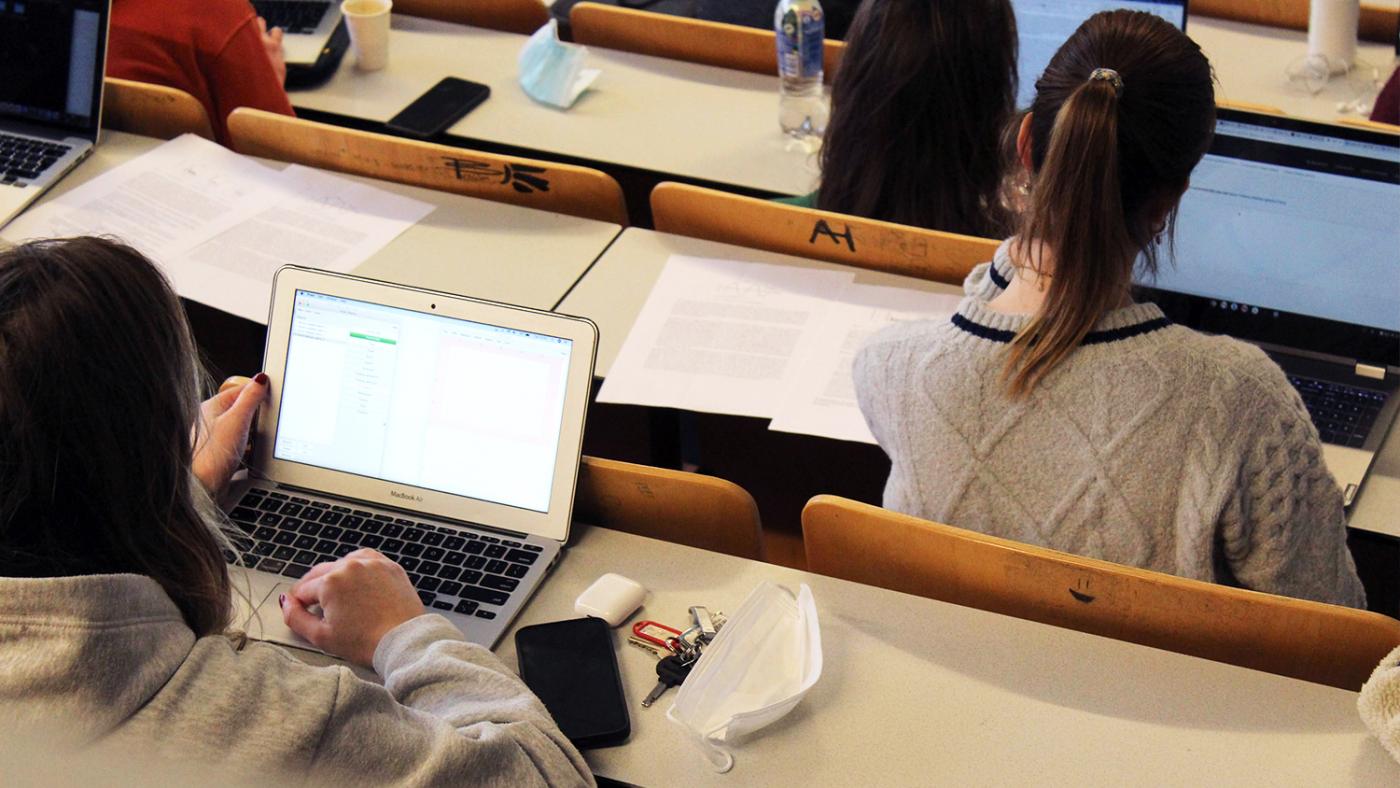Binding study advice is lowered
Minister of Education considers 30 credits enough in first year

Dijkgraaf wants to lower the number of credits first-year students must obtain in order to be allowed to go on with their studies — the so-called binding study advice (BSA). The minister's proposal is to allow freshers to stay if they've obtained at least half of the credits.
They do have to obtain 30 credits again in the second year, however, he writes in a letter to the House of Representatives (in Dutch, Ed.). So, they will have collected at least 60 credits in two years. According to the minister, this new rule would reduce pressure and give freshers more time to get used to university life, which could have a positive impact on their mental health.
The current norm is an average of 45 credits. The change would represent an average of 15 fewer credits. But, to make it a reality, one needs an amendment and that takes time: the plans are supposed to go into force in September 2025.
“Too much pressure has a paralysing effect and can cause a drop in performance, so it distorts the view of whether the student is suited to a particular study programme”, Dijkgraaf explains in a press release.
In his view, freshers already have enough to worry about. “Students have a lot of things to deal with in the first year, such as living with roommates, getting accustomed to university life, and standing on their own two feet.” His conclusion is that study programmes should not set the bar too high.
Reactions: research universities
This is a bad plan, in the opinion of Pieter Duisenberg, President of the association of Dutch research universities, Universities of The Netherlands (UNL). At an online press conference, he showed figures and graphs to demonstrate that the current BSA works just fine.
In the universities' view, thanks to the BSA, students understand more quickly where they stand. In fact, weaker students are precisely the ones who benefit the most from a high norm as they are encouraged to work towards the norm: if the bar is set higher, they jump higher and will benefit from that throughout the entire programme.
WOinActie
A lower BSA norm will increase the workload of teaching staff, predicts Casper Abers, a Professor of Statistics at Groningen University and a member of WOinActie, a protest movement defending the interests of academic teachers. He was also present at the online press conference. His argument is a lower BSA keeps weaker students longer in the programme, which requires more attention from the teachers. If the minister wants to proceed with his plan, he ought to make more money available for universities, Albert believes. Last but not least, a lower BSA could reduce the quality of education as it would not be good for seniors to be in a workgroup with students who still have to catch up on first-year courses.
Students
The Dutch Student Union (LSVb) is pleased. Commenting on the minister's move, Chair Joram van Velzen says: “Currently, the BSA is often used as a way of getting rid of weaker students as quickly as possible.” The union would prefer the BSA not to exist at all.
The Dutch National Student Association (ISO) also deems the plans a breath of fresh air. “As far as we are concerned, the words binding and recommendation don’t belong together”, states board member Sam de Fockert. “This relaxation will ensure a better balance between students' mental health and the progress of their studies.”
Politics
Dijkgraaf’s predecessor,Ingrid van Engelshoven, also wanted to lower the BSA. In September 2018, she announced that the norm would be reduced to 40 credits in the first year. However, she had to back down on those plans, saying that her main aim had been to “put a cat among the pigeons”.
Dijkgraaf's proposal still needs to be debated in the House of Representatives. That could be tricky, considering the two largest coalition parties, VVD and D66, have opposing views on the BSA. The VVD is happy with a tough norm, while D66 is sceptical.
The coalition agreement says that the BSA will be altered but it doesn't specify how. Students ought to get the opportunity to achieve the norm at least in their second year. “If there is clear evidence of inadequate study progress, the institution retains the option to issue a BSA at the end of the first year and help the student find a more suitable study programme.”
Alternative
Research universities are proposing two alternatives. Their preference is to allow study programmes to decide themselves what norm suits them best, in consultation with the university council. Should that be politically impracticable, then they are favourable of a higher bar, at up to 45 points.